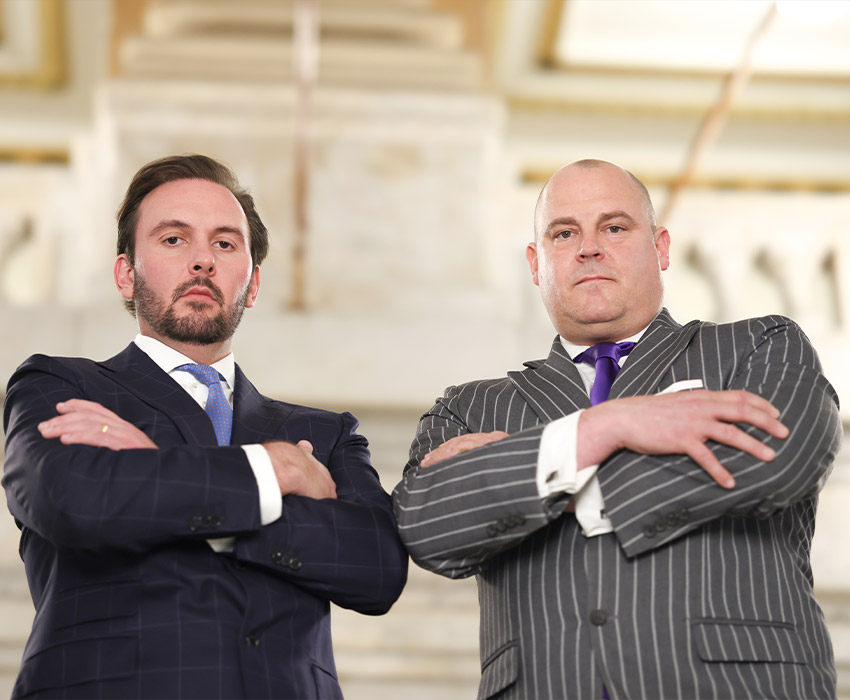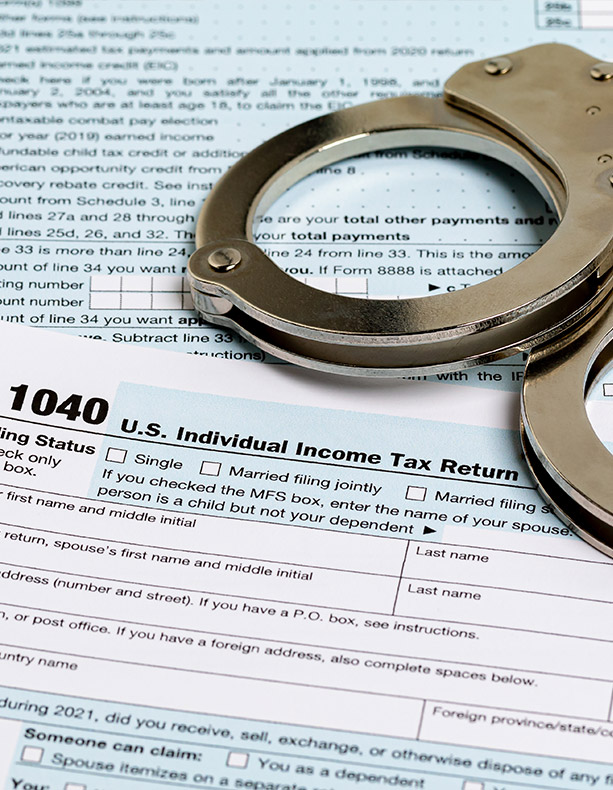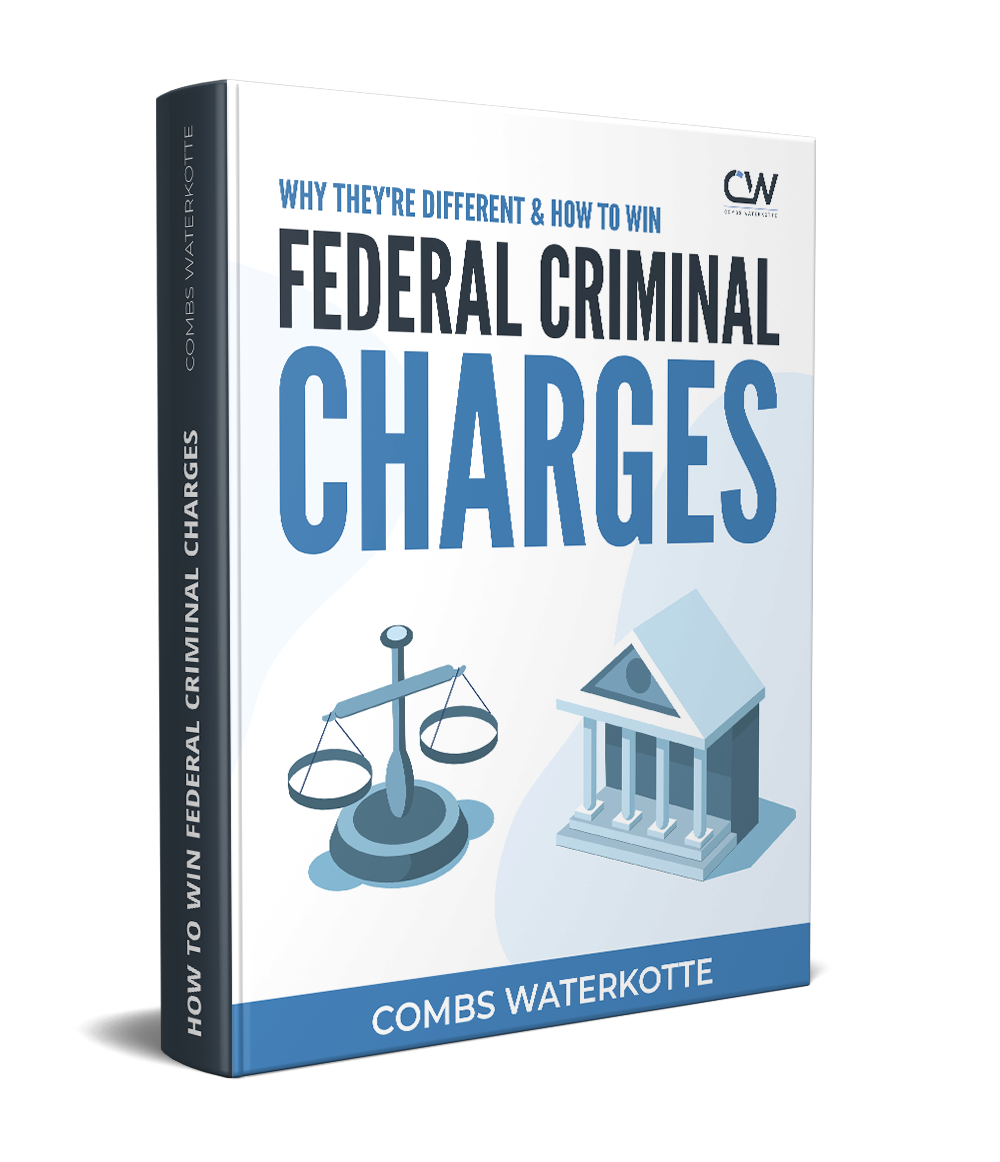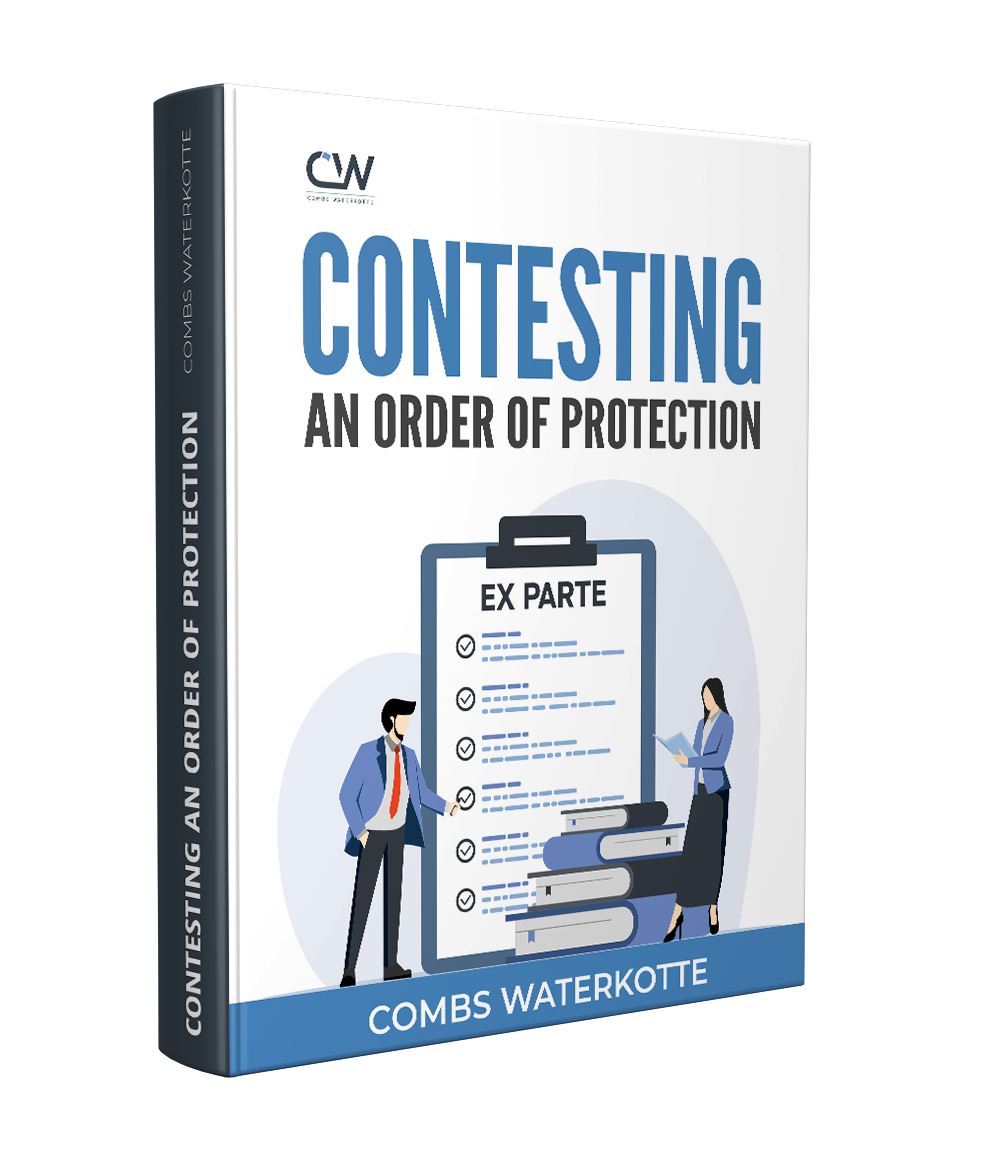What Is Federal Tax Evasion & Tax Fraud?
Federal tax fraud refers to willfully attempting to evade or defeat a tax obligation. These crimes are primarily prosecuted under 26 U.S.C. § 7201 (Tax Evasion) and 26 U.S.C. § 7206 (Fraud and False Statements). The government must prove that you intentionally underreported income, overstated deductions, failed to file returns, or otherwise took action to avoid paying taxes owed.
At Combs Waterkotte, our federal criminal defense lawyers in Missouri know how to challenge the government’s narrative and protect what matters most—your freedom and your future. We combine aggressive courtroom advocacy with strategic negotiations to deliver results for professionals, executives, and investors facing tax evasions and fraud allegations in Missouri’s federal courts.
We help Missouri residents just like you fight these charges. Call Combs Waterkotte's federal tax evasions and fraud team right away at (314) 900-HELP or reach out online for a free, confidential consultation.
What are Examples of Federal Tax Evasions & Fraud in Missouri?
Examples of federal tax fraud our Missouri defense attorneys have experience in include:
- Filing false tax returns with overstated deductions or unreported income.
- Using offshore accounts to hide income or assets.
- Claiming fictitious dependents or credits to reduce tax liability.
- Failing to file tax returns despite significant income.
- Running payroll or sales tax schemes to avoid remitting taxes collected.
- Structuring financial transactions to avoid IRS reporting thresholds.
Common Federal Tax Fraud Charges in Missouri
- Wire & Mail Fraud (18 U.S.C. §§ 1341, 1343): Using interstate communications to execute a tax fraud scheme.
- Money Laundering (18 U.S.C. §§ 1956, 1957): Concealing the source of funds derived from illegal tax schemes.
- Tax Evasion (26 U.S.C. § 7201): Willfully attempting to evade or defeat any tax. Punishable by up to 5 years in prison per count.
- Filing False Returns (26 U.S.C. § 7206): Knowingly signing and filing a false return, statement, or document under penalties of perjury.
- Failure to File (26 U.S.C. § 7203): Willful failure to file a required return, keep records, or supply information.
- Conspiracy to Defraud the Government (18 U.S.C. § 371): Agreement with others to commit tax fraud or impede IRS functions.
Important: The earlier you retain a federal defense lawyer, the more options we have to prevent charges, challenge evidence, and minimize your exposure to prison time or asset seizures.
Penalties for Federal Tax Fraud
The consequences of a federal tax fraud conviction are severe:
- Prison: Up to 5 years per count for tax evasion, plus additional penalties for related offenses.
- Fines: Up to $250,000 for individuals, $500,000 for corporations, plus the cost of prosecution.
- Restitution: Mandatory repayment of unpaid taxes, penalties, and interest.
- Asset Seizure: The IRS can seize property, freeze accounts, and garnish wages.
- Reputational Harm: Public criminal records and media coverage can destroy careers and business relationships.
Federal Court Process Timeline for Tax Cases in Missouri
Federal tax fraud and tax evasion cases often move quickly once prosecutors get involved. Understanding each step helps you stay ahead of the process, and gives your legal team time to act strategically on your behalf. Here’s a detailed, step-by-step look at what typically happens:
Step 1: IRS Criminal Investigation
Most cases start with a civil audit or a suspicious activity report. If the IRS believes you willfully underpaid or concealed taxes, your case is referred to IRS-CI. Agents gather bank records, issue subpoenas, and may interview witnesses for months or even years—often before you are even aware you’re a target. This is the best time to hire a federal tax fraud defense lawyer, as early intervention can sometimes stop a criminal referral altogether.
Step 2: Grand Jury Investigation & Indictment
Once IRS-CI finishes its investigation, prosecutors present evidence to a federal grand jury. Witnesses may be called to testify, and additional subpoenas can be issued. If the grand jury finds probable cause, they issue a formal indictment listing the charges against you.
Step 3: Arrest or Summons & Arraignment
Following the indictment, you may be arrested or ordered to appear in Missouri’s Eastern (St. Louis) or Western District Court (Kansas City). At the arraignment, the charges are read, and your attorney will enter a plea (usually “not guilty”) while fighting for the least restrictive bail or release conditions.
Step 4: Discovery & Pretrial Motions
During discovery, the government must turn over its evidence, including tax returns, transaction records, and witness statements. Your federal tax evasions and fraud attorney can file pretrial motions to suppress unlawfully obtained evidence, exclude prejudicial testimony, or even dismiss weak charges.
Step 5: Defense Investigation & Case Building
We conduct our own independent investigation, working with forensic accountants, reviewing every transaction, and identifying weaknesses in the government’s case. This proactive work often uncovers evidence that can lead to better plea negotiations or even dismissal.
Step 6: Plea Negotiations & Resolutions
Many tax cases resolve through negotiated pleas or restitution agreements. Our trial-ready approach gives us leverage to secure reduced charges, probationary sentences, or favorable financial arrangements that minimize exposure to prison and protect your assets.
Step 7: Trial
If no resolution is reached, the case proceeds to trial. The government must prove each element of tax fraud beyond a reasonable doubt, including willfulness. We aggressively cross-examine IRS agents, challenge forensic accounting, and present alternative explanations to create reasonable doubt.
Step 8: Sentencing
If convicted, federal sentencing guidelines determine the potential prison term and fines. We argue for downward departures, mitigating factors, and credit for restitution or cooperation to reduce penalties as much as possible.
Step 9: Appeals & Post-Conviction Relief
Even after sentencing, options remain. We can file appeals, seek sentence reductions, or challenge procedural errors to pursue relief and minimize long-term consequences.
Defenses to Federal Tax Evasion Charges in Missouri
Our federal tax fraud attorneys carefully analyze IRS records, financial transactions, and investigative procedures to craft a strong defense. Common strategies include:
- Lack of Willfulness: Proving that any errors were accidental, not intentional.
- Insufficient Evidence: Challenging the government’s ability to link you to alleged transactions or false filings.
- Statute of Limitations: Asserting that the charges are time-barred under federal law.
- Improper IRS Procedures: Suppressing evidence obtained through unlawful summonses or searches.
- Reliance on Professionals: Demonstrating that you acted in good faith on advice from accountants or tax preparers.
Impact on Professional Licenses & Finances
A federal tax fraud conviction can cost more than money. Here's what could happen to your professional license(s) if convicted in Missouri:
- License Revocations: Loss of CPA, attorney, or professional licenses.
- Disqualification: Ineligibility to contract with government agencies.
- Reputational Damage: Public records of conviction can devastate careers and personal relationships.
- Financial Ruin: Combined restitution, fines, and interest can wipe out savings or destroy a business.
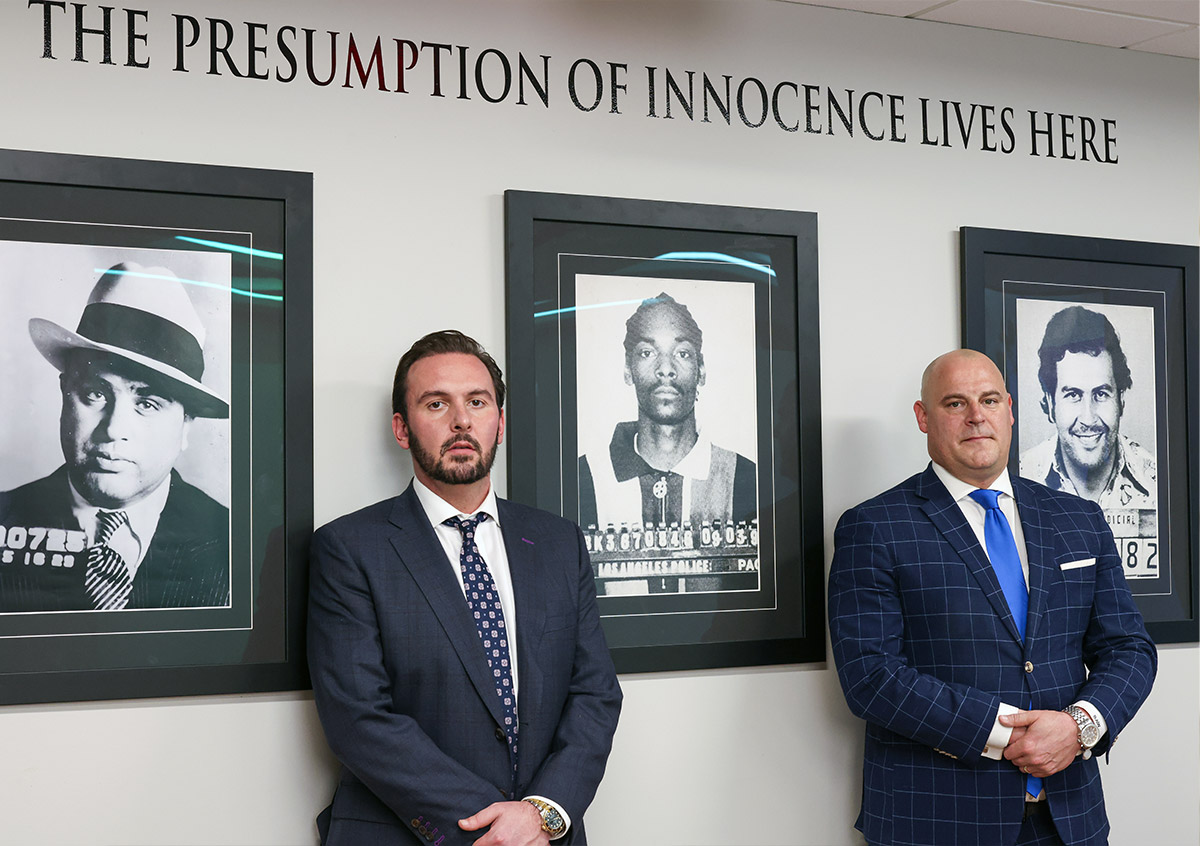
Federal Tax Evasion & Tax Fraud FAQ
Can the IRS charge me with a crime after an audit?
Yes. If auditors suspect fraud, they may refer your case to IRS-CI for criminal investigation and possible prosecution.
Is it possible to avoid prison in a federal tax fraud case?
Yes. Early negotiation, restitution payments, and skilled advocacy can result in probation, reduced charges, or dismissal in some cases.
How long does the IRS have to charge me?
Generally 6 years from the date of the alleged violation, though this can be extended in certain cases.
Will I lose my business if I’m convicted?
Possibly. The government may revoke licenses, seize assets, or bar you from contracting. Our attorneys fight to protect your livelihood.
Why Choose Combs Waterkotte for Your Tax Fraud Defense in Missouri
Selecting the right lawyer for a federal tax fraud case isn’t just important, it’s critical. At Combs Waterkotte, we approach every case with meticulous preparation, clear communication, and a proven record of winning in Missouri’s federal courts.
- Tailored Strategy: We learn your priorities, walk you through each stage, and craft a defense that fits your unique situation—keeping you in control from start to finish.
- Trial-Ready Focus: We prepare as if a jury is waiting. This level of readiness not only strengthens your position but gives us leverage to push back against aggressive prosecutors.
- Elite Resources: From forensic accountants to industry experts, we bring together the professionals needed to expose weaknesses in the government’s case.
- Seasoned Advocacy: With decades of combined federal trial experience, we know the judges, prosecutors, and procedures that will shape your case, and how to turn them to your advantage.
If you’re under investigation for federal tax evasion and fraud, don’t wait. Work with a Missouri federal fax fraud defense lawyer who will stand between you and the full power of the government.
Bottom Line: The earlier you involve a federal tax fraud defense lawyer, the more control you have over the outcome. Acting during the IRS investigation stage—before indictment—can sometimes prevent charges, negotiate a civil resolution, or significantly reduce the penalties you face. Call (314) 900-HELP now or contact us online to protect your future.











